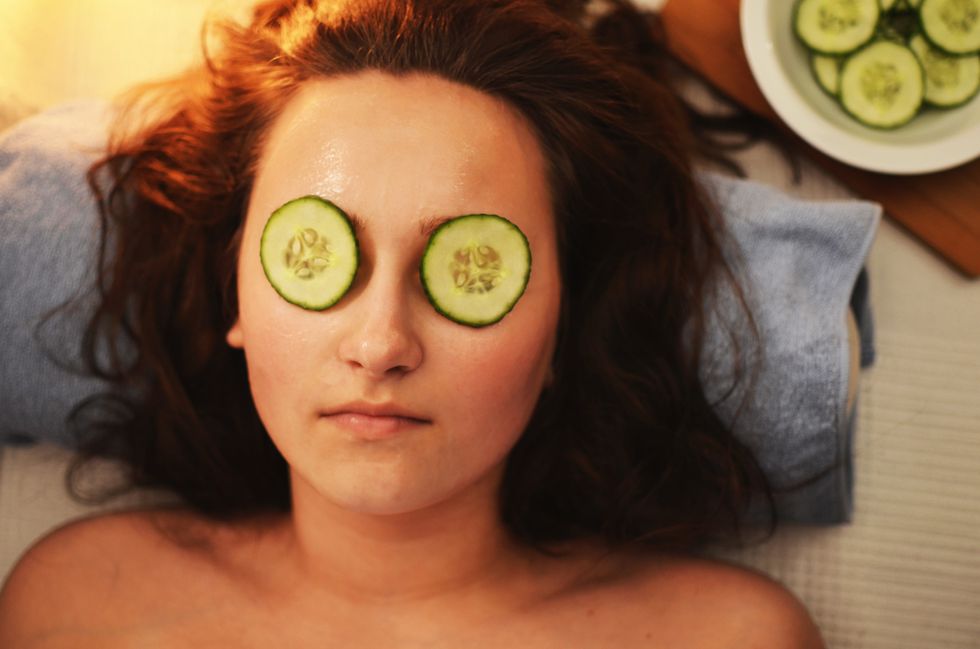Let's face it: some of us are blessed with good genes.
You know the type—they can rub a bar of soap on their face and never have to worry about breaking out (although they may complain about the occasional, minuscule bump on their forehead). Once I reached middle school, that ceased to be the case for me. My skin has calmed down a lot since then, however, and I believe this can largely be attributed to my healthy diet and all-natural skincare routine.
When deciding what products to purchase, it's important to know your skin type. These range from normal (i.e. good genes) to dry, oily, sensitive, or combination. I have the latter, which means that my skin is oily in the T-zone (imagine a lowercase "t" drawn from your forehead to your chin, and across the bridge of your nose) but dry on my cheeks—talk about the best of both worlds.
Your skin type will determine the products you try. If you have dry skin, you'll want to find products that are more moisturizing, while oily skin types may look for ones that pack a stronger punch.
One thing I always do before buying a product is to check the label: first to make sure it is vegan and cruelty free, and then to look at the ingredients. Ideally, the list will be short, and you should be able to pronounce every word. I always steer clear of unnecessary chemicals and additives in my routine, and have linked my staple products below as examples of high-quality, all-natural brands.
1. Cleanser
This is the most important part of any skincare routine—especially at night. Even if you don't wear makeup, your skin has been exposed to any number of germs and dirt as you walk around and touch your hands to your face. I use an organic face wash from Thesis Beauty that is designed to balance and treat your skin.
2. Toner
For the longest time I avoided jumping on the "toner" bandwagon. Since incorporating Thayer's witch hazel toner into my routine, however, I've noticed that my skin is calmer and more evenly toned (hence the name). Just add a few drops of your toner of choice on to a cotton round and sweep it on your face and neck after cleansing—it should feel cooling and soothing.
3. Oils
I know that some of you may balk at the idea of putting oils on your (already oily) skin—trust me, I get it. However, if your skin is feeling tight or dry after washing, your brain is going to think it needs to produce more oil to compensate. Ensuring that your skin is moisturized will prevent that extra oil production. Many oils also come with added benefits: the rosehip oil I use is great at treating those annoying dark spots that linger long after a breakout.
4. Exfoliants & Masks
Last but certainly not least, it's important to incorporate a good exfoliant and mask into your routine. These two products are generally used a couple of times a week, depending on your skin type—I can get away with exfoliating three times a week, because my skin tends to be more oily. I use an exfoliator from ACURE that gently removes any dead skin cells, and a clay mask one to two times a week depending on how problematic my skin is being.
If you struggle with breakouts or just want to brighten your complexion, I highly recommend adopting an all-natural skincare regiment. Your skin will thank you—now and down the line.

















